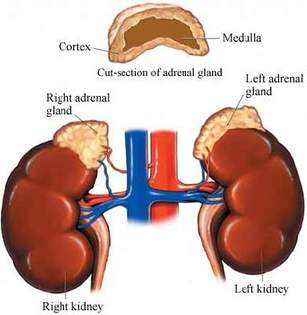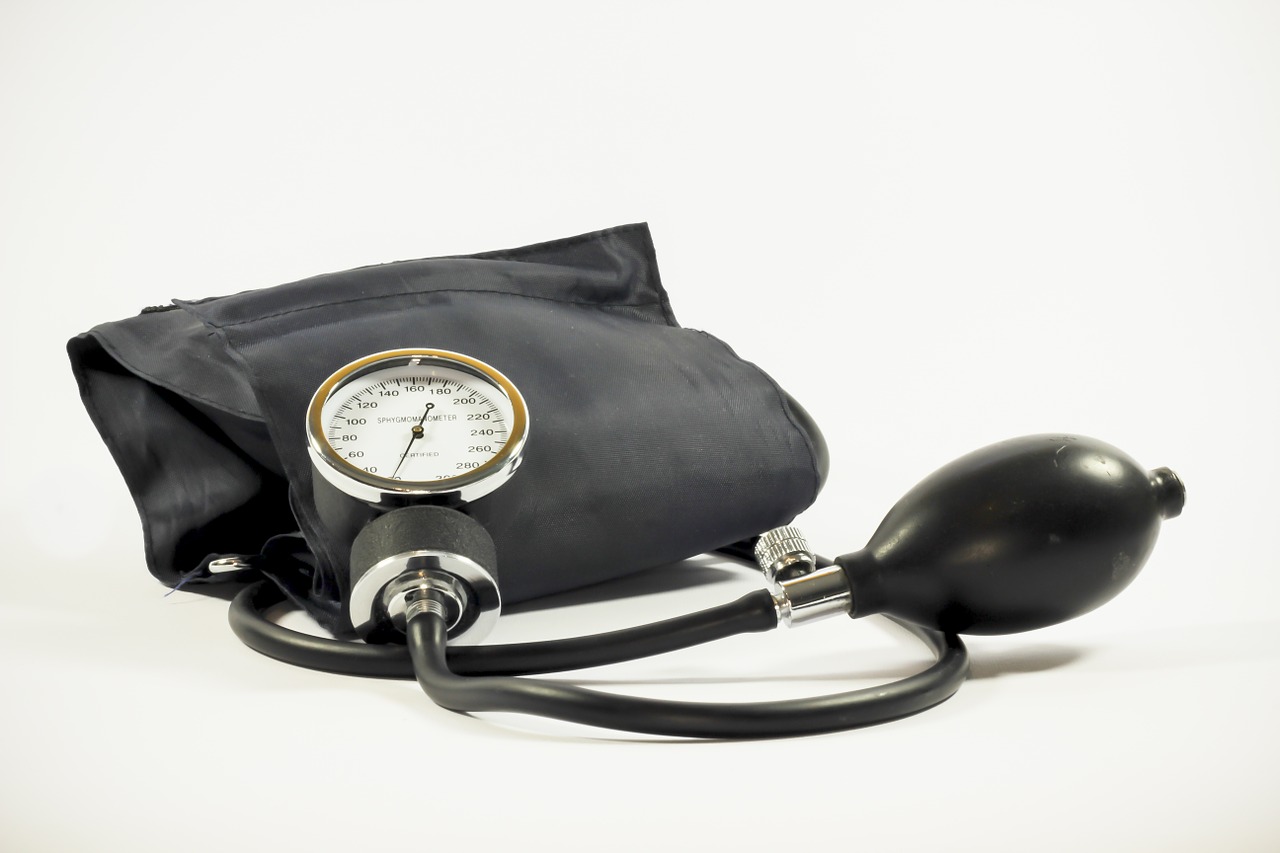Do you feel constantly tired after a good night of sleep? Do you find yourself drinking coffee or other caffeinated drinks to help you get energized throughout the day? Do you crave sweet and salty foods? Believe it or not these are common symptoms of adrenal fatigue.
The adrenal glands secrete precise and minute amounts of hormones when your body needs them. This also means that if you are under constant stress, whether, physical, environmental or emotional, your adrenal glands can become depleted.
In a society where we are plagued by poor diets, stress and long work hours it’s no surprise that an estimated 80% percent of adults suffer from adrenal fatigue.
Sadly, fatigue is such a common complaint, that many doctors can miss the mark on this and simply attribute it to overwork or stress.

The mighty power of the adrenal glands
The adrenal glands sit on top of your kidneys. No larger than a walnut and weighing less than a grape, these tiny glands have a major impact on every tissue, gland and organ in your body. While these glands are tiny they have a tremendous impact on your energy levels, the way you think and feel.
The hormones the adrenals secrete influence all of the physiological processes in your body. They affect how your body uses carbs and fats, and the conversion of proteins and fats into energy. They also affect how your body distributes stored fat, regulates blood sugar, as well as cardiovascular and gastrointestinal function.
In addition the anti-inflammatory and anti-oxidant hormones secreted by the adrenals also help to minimize allergic reactions to foods, alcohol, drugs and environmental allergens.
Common factors that affect the adrenals
Adrenal fatigue can often be preceded by severe infections, such as bronchitis, pneumonia and other respiratory illnesses. The more frequently illness occurs the more stress is created on the body and the more likely it becomes that the adrenals will become depleted.
According to Dr. James L. Wilson, author of Adrenal Fatigue-The 21st Century Stress Syndrome additional factors include:
| Death of a loved one | Smoking | Wound healing |
| Repeated stress | Lack of sleep | Prescription drugs |
| Allergies | Poor eating habits | Nonprescription drugs |
| Over exertion | Sugar & white flour products | Caffeine |
| Emotional stress | Lack of exercise | Psychological stress |
| Negative attitude | Excessive exercise | Financial pressure |
| Toxins | Chronic /acute infections | Lack of rest/relaxation |
Signs & symptoms of adrenal fatigue
| Difficulty getting up in the morning | Craving salty or sweet foods |
| Continued fatigue not relieved by sleep | Increased effort to get through the day |
| Lack of energy/ Lethargy | Difficulty handling stress |
| Decreased sex drive | Lengthy recovery time after illness or injury |
| Light headed if standing too quickly | Depression |
| Lack of interest or enjoyment with life | Symptoms worsen with skipped meals |
| Increased PMS symptoms | Memory difficulties |
| Brain Fog | Impatience |
| Decreased productivity |

6 Self-help tips for adrenal fatigue
It’s always important to remember that healing takes time. Your adrenals didn’t become depleted overnight, so you’re not going to get better overnight either. Lifestyle changes will be required to regain your health.
- Healthy foods-Avoid processed foods whenever possible. Focus on whole, fresh organic foods. Make every bite count. When snacking don’t fill up on chips, instead focus on a protein rich snack to help stabilize blood sugar levels.
- Sleep-Try to keep consistent hours for your sleep time. Be sure to avoid TV and electronic devices for an hour or so before bedtime.
- Avoid sugar and stimulants-Sugar may give you the quick boost you need, but an hour or so after you eat your blood sugar level drops and you feel more tired than before. Consider eating protein based foods that will nourish your body long term.
- Reduce stress-Everyone is dealing with stress on some level. It’s important to have some type of outlet for your stress. Consider exercise, meditation, gardening, long walks or some other stress free activity you enjoy.
- Supplements-Nutritional supplements play an important role in recovering from adrenal fatigue. You should talk with your healthcare practitioner about what suits your needs best. Choose organic, whole food supplements when possible. Some of the more important supplements to consider for adrenal fatigue are vitamin C, E, pantothenic acid, niacin, B6 and minerals such as calcium and magnesium.
- Herbs-Six herbs worth considering for adrenal support include:
Ashwagandha-A great tonic herb and adaptogen.
Ginger root– An adaptogen that helps regulate cortisol levels, normalize blood pressure & heart rate.
Gingko leaf-This powerful anti-oxidant helps to protect the adrenals, brain and liver from free radical damage.
Korean ginseng-More suitable for men, than women. Helps increase cortisol levels.
Licorice root-Supports adrenal function
Siberian ginseng-Good for both men & women. Helps support & rejuvenate adrenals.

Testing for adrenal fatigue
Most medical doctors don’t test for adrenal fatigue unless they suspect a more serious condition such as Addison’s or Cushing’s disease. You can however order a saliva hormone test to measure cortisol levels. Saliva tests for hormone levels are as accurate as blood tests for measuring hormone levels. The test involves simply spitting into a test tube. Cortisol is measured four times – in the morning (8 AM), noon, evening (4 PM) and night (best between 11 PM and midnight). Once the sample set is complete, you mail the tubes back to the lab for analysis in the mailing envelop that is included with the test kit. Both you and your doctor will receive copies of the results, usually within 2 weeks.
Labs to order saliva testing
ZRT Labs-Individuals can order test kit directly
Genova Diagnostics-Test must be ordered through your practitioner

Ragland’s Test
This is a simple test you can perform at home with a blood pressure cuff. This test known as Ragland’s Test checks for an abnormal drop in systolic blood pressure (the top number). For this test, you’ll need a blood pressure cuff.
- Take a baseline reading while sitting comfortably in a chair. The cuff should be level with your heart.
- Lie down and rest for 5 minutes. While still horizontal, take your blood pressure reading.
- Move to a standing position and take another reading.
It is common that when moving from a sitting position to lying down, to have the systolic reading drop 6-10mm.
Upon standing, if your adrenals are functioning properly, your systolic blood pressure number should rise 10–20 points. If it drops, particularly by 10 points or more, adrenal insufficiency is indicated. Generally, the bigger the drop, the greater the adrenal insufficiency.
In conclusion
Recovering from adrenal fatigue can take time. If you believe you are suffering from adrenal fatigue, discuss nutritional supplements and dietary support with your healthcare practitioner. With positive lifestyle changes, modification of your diet, nutritional support and following the self-help techniques listed above, you are well on your way to recovery from adrenal fatigue.
This article was originally posted at Wake Up World.








